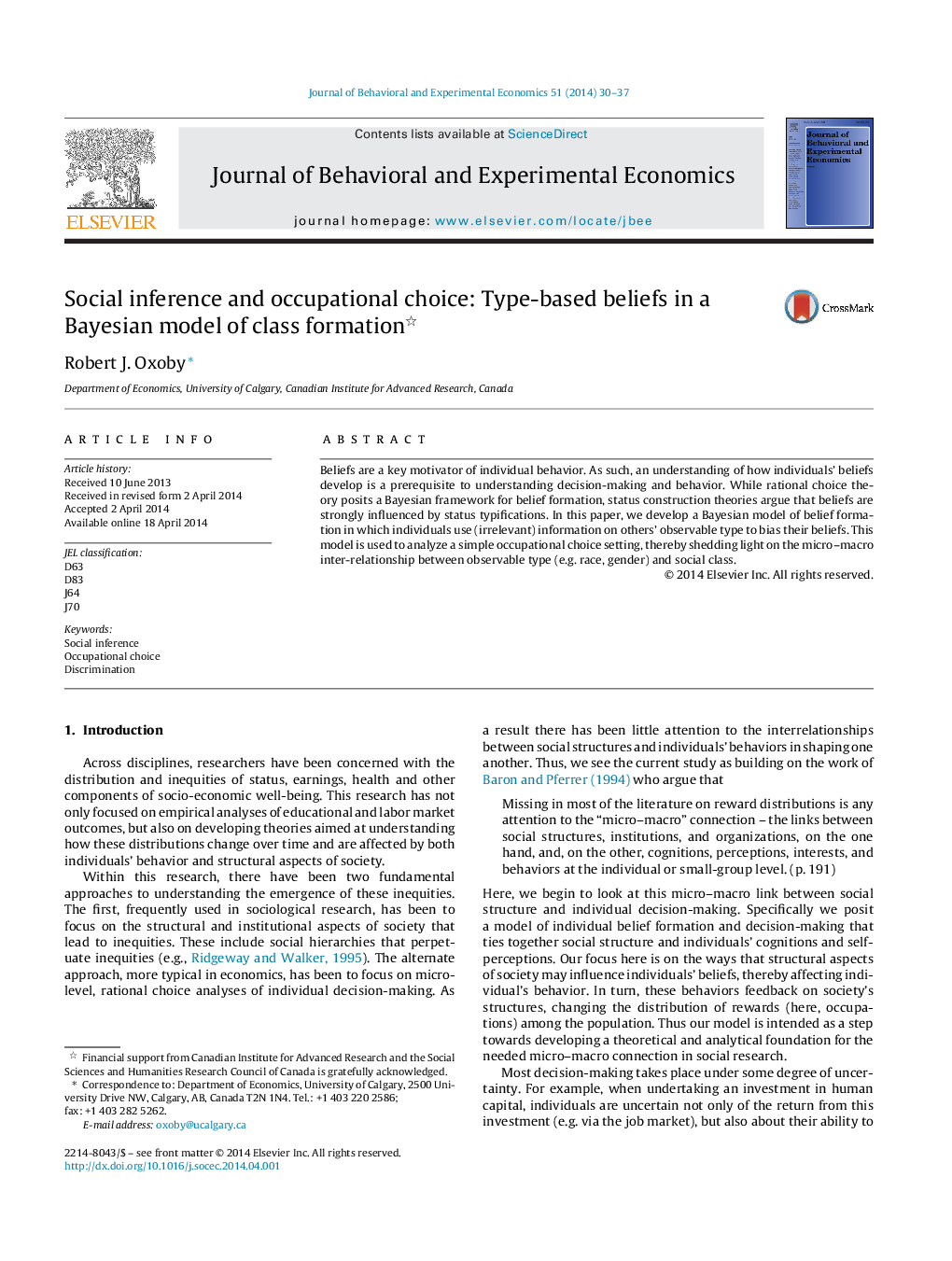| Article ID | Journal | Published Year | Pages | File Type |
|---|---|---|---|---|
| 881887 | Journal of Behavioral and Experimental Economics | 2014 | 8 Pages |
•We develop a model of belief formation where social information affects beliefs.•We delineate cases where social information can bias belief about one's own abilities.•Using a Bayesian process, we observe equilibrium in which individuals segregate themselves by occupation.•We present policies that can enhance efficiency by correcting for social biases.
Beliefs are a key motivator of individual behavior. As such, an understanding of how individuals’ beliefs develop is a prerequisite to understanding decision-making and behavior. While rational choice theory posits a Bayesian framework for belief formation, status construction theories argue that beliefs are strongly influenced by status typifications. In this paper, we develop a Bayesian model of belief formation in which individuals use (irrelevant) information on others’ observable type to bias their beliefs. This model is used to analyze a simple occupational choice setting, thereby shedding light on the micro–macro inter-relationship between observable type (e.g. race, gender) and social class.
